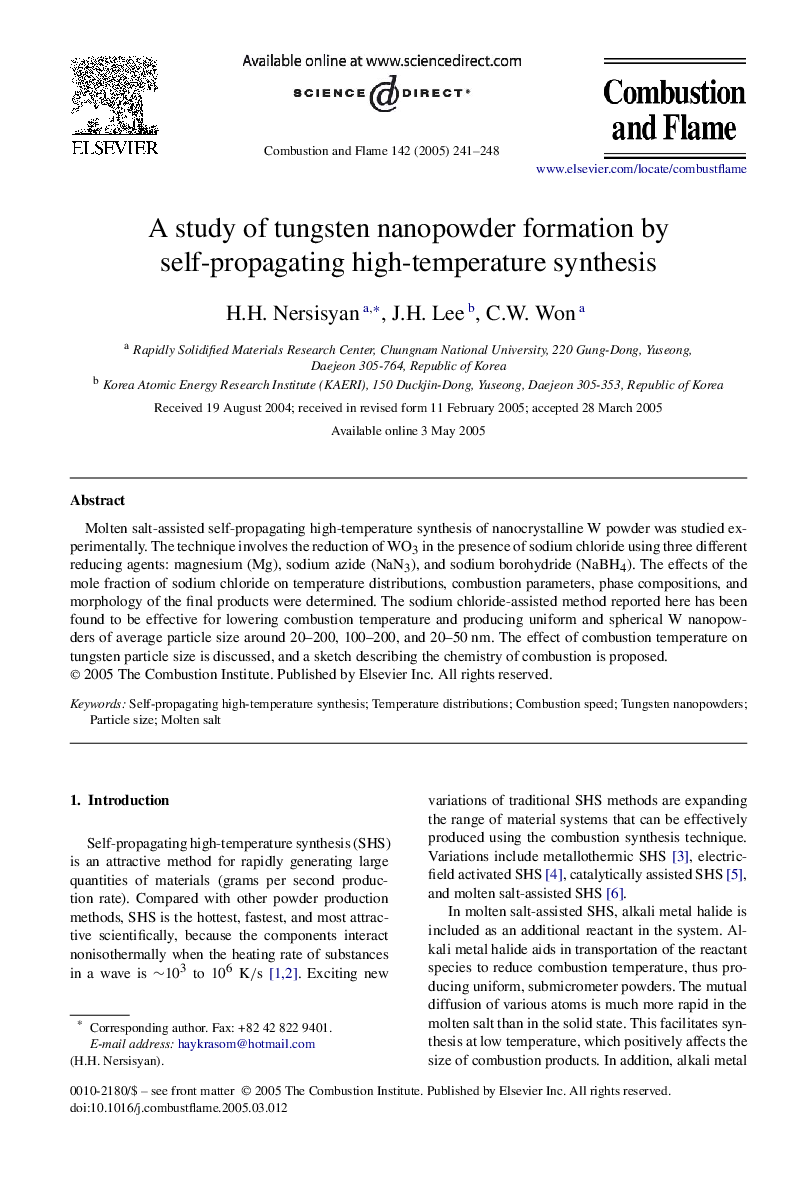| Article ID | Journal | Published Year | Pages | File Type |
|---|---|---|---|---|
| 10264441 | Combustion and Flame | 2005 | 8 Pages |
Abstract
Molten salt-assisted self-propagating high-temperature synthesis of nanocrystalline W powder was studied experimentally. The technique involves the reduction of WO3 in the presence of sodium chloride using three different reducing agents: magnesium (Mg), sodium azide (NaN3), and sodium borohydride (NaBH4). The effects of the mole fraction of sodium chloride on temperature distributions, combustion parameters, phase compositions, and morphology of the final products were determined. The sodium chloride-assisted method reported here has been found to be effective for lowering combustion temperature and producing uniform and spherical W nanopowders of average particle size around 20-200, 100-200, and 20-50 nm. The effect of combustion temperature on tungsten particle size is discussed, and a sketch describing the chemistry of combustion is proposed.
Keywords
Related Topics
Physical Sciences and Engineering
Chemical Engineering
Chemical Engineering (General)
Authors
H.H. Nersisyan, J.H. Lee, C.W. Won,
